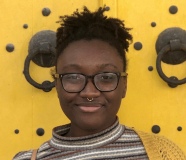Bird & Bee Health is a Rhode Island-based virtual women’s health and wellness startup that has evolved from its initial focus of serving primarily TTC clients (trying to conceive) to offering a variety of web-based services to women of all ages. The venture provides hormone testing, integrative health coaching, and health education services. Their expertise centers on helping women who are struggling with hormone imbalances, either as a standalone struggle or in conjunction with fertility, pregnancy, postpartum, or perimenopause.
is a Rhode Island-based virtual women’s health and wellness startup that has evolved from its initial focus of serving primarily TTC clients (trying to conceive) to offering a variety of web-based services to women of all ages. The venture provides hormone testing, integrative health coaching, and health education services. Their expertise centers on helping women who are struggling with hormone imbalances, either as a standalone struggle or in conjunction with fertility, pregnancy, postpartum, or perimenopause.
Founder Kate Naranjo initially saw the need for a health-focused social venture back in 2017 after being let down by the conventional healthcare system herself. “The real guiding force for me was that I had so many questions about my own health, and having been in my body for so many years and not being able to find the answers I sought, I felt a little bit disappointed,” she says. “And so I started looking for answers to my own questions and found my disappointment continued with my provider’s lack of assistance. So I set out to fill that gap for myself and for those who were in similar situations. I wanted to create a resource for women who had questions about their health — at any stage of life.”
From there, Kate narrowed her focus to some general experiences women undergo in adulthood. “Primarily these questions come up in the reproductive years,” she says. “I find that in our twenties and thirties, questions start to arise a lot more about reproductive health, especially when we’re expecting different outcomes from our bodies than what we’ve been dealing with for the past 10, 15, or even 20 years. Initially, I wanted to focus in the fertility space, in the sense that I was working on how lifestyle health and behavioral health changes impacted overall fertility health.” It was from this desire that Bird & Bee Health was born.
“Changing the healthcare system holistically will allow us to teach people to be healthy versus teaching people how to manage illnesses.”
What sets Bird & Bee Health apart from traditional healthcare practices is its utilization of an integrative approach. “What I was interested in was having real established relationships with clients, longer than the standard of a couple of minutes a year,” she says. “I wanted to help with formulating behavior change and healthy habit formation. I wanted to work to address the root cause in hormone imbalance symptoms. I wanted to help people live their healthiest lives, however they define that. And so that vision is what led me to integrative health coaching.”
She also wanted flexibility. Kate’s previous work experience in New York’s tech hub gave her insight into the fast pace of that industry — a feature she wanted to adopt into her health business model. “Working in technology, in New York City of all places, just showed me how quickly things change,” she says. “And I guess my biggest frustration or my biggest hold up with going back to get a conventional medical degree was that the medical industry is so slow to change. I knew I needed to be in a seat that was a little bit more agile, and integrative health coaching allows me exactly that.”
The SEG Network Effect
Kate encountered Social Enterprise Greenhouse early in her ideation phase and joined SEG’s 2019 Health & Wellness Accelerator to continue to develop her business. She acknowledges how helpful the program was in the startup stage. “SEG gave me access to great advisors from a wide range of specialties that I otherwise would not have thought to connect with in my first year of business,” she says. “The structure of the program allowed me to reassess every facet of my venture, really setting me up with a successful and sturdy foundation.“
Establishing Bird & Bee Health as a social enterprise was part of building that foundation. “To be honest, when I was starting Bird & Bee Health, I didn’t know what it meant to be a social entrepreneur,” she says. “I just knew I wanted to start a business to fill a need in the market and I wanted to do good in the process. The Health & Wellness Accelerator at SEG helped me define the type of business owner I desired to be.”
“For someone who’s coming into a social impact program, it really benefits them to have a strong passion for entrepreneurship, even if they might not have had a formal business education.”
For Kate, it’s all about social equity. “I have such a desire to make healthcare actually make all people healthy and not have it be a luxury thing where if you have money and you’re in the right socioeconomic class, then you can be healthy,” she adds. “Everyone should have access to this, right? And changing the healthcare system holistically will allow us to teach people to be healthy versus teaching people how to manage illnesses.”
Social impact is built into Bird & Bee Health at this stage of business via their cost models. Services are designed on a tiered model from low cost/commitment to higher cost/commitment. To keep their services more widely available, they offer group workshops on a donation basis or pay-what-you-can model. Bird & Bee Health’s coaches provide education to clients to empower them to make their own healthy choices, especially in the areas of nutrition, movement, sleep, stress management and physical environment. Depending on the client’s priorities, they also educate and train them on charting the monthly cycle for an added layer of health insight.
Another aspect of SEG’s Accelerator that Kate appreciated was its suitability for people from many different backgrounds. “For someone who’s coming into a social impact program, it really benefits them to have a strong passion for entrepreneurship, even if they might not have had a formal business education,” she says. “So for me it was like a mini-MBA on how to judge success in the business and how to be realistic with myself when starting a business and how to be kind to myself as an entrepreneur. That’s my biggest takeaway from SEG’s program.”
Since graduating from the SEG Accelerator, Bird & Bee Health has continued to operate, although like other businesses in the past year, they’ve experienced the consequences of the pandemic and have had to shift their business model to ensure continued success. “As an out-of-pocket healthcare expense, we quickly felt the effects of COVID-19 on the economy,” says Kate. “However, we pivoted as gracefully as we could to become a virtual business versus operating out of our office in Providence, which has consequently opened up our reach to have a far wider impact and be nationally based.”
By Melissa Pineda Brown
SEG Community Outreach & Communications VISTA

